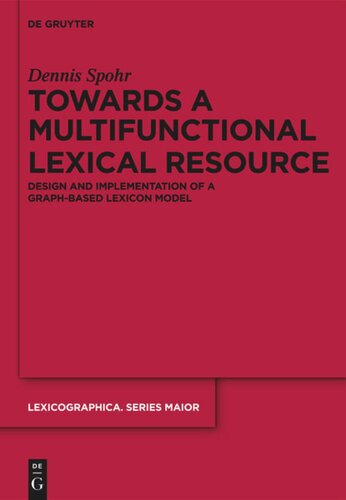

Most ebook files are in PDF format, so you can easily read them using various software such as Foxit Reader or directly on the Google Chrome browser.
Some ebook files are released by publishers in other formats such as .awz, .mobi, .epub, .fb2, etc. You may need to install specific software to read these formats on mobile/PC, such as Calibre.
Please read the tutorial at this link: https://ebookbell.com/faq
We offer FREE conversion to the popular formats you request; however, this may take some time. Therefore, right after payment, please email us, and we will try to provide the service as quickly as possible.
For some exceptional file formats or broken links (if any), please refrain from opening any disputes. Instead, email us first, and we will try to assist within a maximum of 6 hours.
EbookBell Team

4.1
90 reviewsWhat are the principles according to which lexical data should be represented in order to form a lexical database that can serve as a basis for the construction of several different monofunctional dictionaries? Starting from the notion of lexicographic functions as defined by Henning Bergenholtz and Sven Tarp, this question is approached by analysing how current electronic dictionaries and lexical resource models attempt to satisfy the needs of different types of users in different usage situations, in order to identify general requirements on the model for a lexical resource that aims to be “multifunctional” in the above sense. Based on this analysis, this book explores the use of formalisms developed in the context of the semantic web to approach both general and specific lexicographic questions, in particular the representation of multi-word expressions and their properties and relations. In doing so, this book not only addresses several topics which are of relevance to lexicographers and computational linguists alike, but also supports its claims by providing a prototypical implementation of a multifunctional lexical resource using semantic web formalisms.